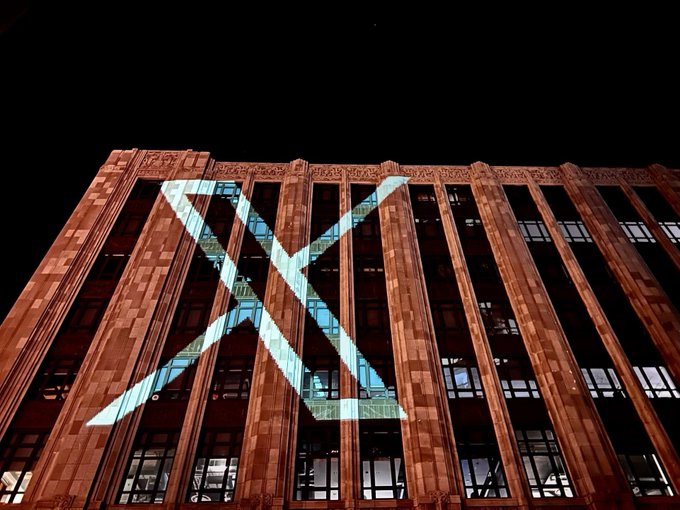Musk’s mad superapp-etite: Why his ‘everything app’ might miss the mark

Another week, another Elon Musk melodrama.
In yet another episode of his theatrics, the tech-obsessed billionaire unveiled his latest surprise this week: a dramatic overhaul of Twitter and rebrand of it as ‘X’.
Musk said the name ‘Twitter’ “does not make sense” after the original short-messaging ethos with a 140 character limit having been scrapped years ago in 2015.
But his decision to abandon the iconic blue ‘Larry the bird’ logo goes deeper than this.
Posting on X, Musk said the move was more than a company renaming itself, explaining that “Twitter was acquired by X Corp both to ensure freedom of speech and as an accelerant for X, the everything app” – something he says he has had on his agenda for a long time.
While the allure of creating a superapp for internet clout dominance is evident, questions have arisen over whether X will succeed.
Is there an appetite for superapps?
Perennially loss-making, Twitter has lost almost half its advertising revenue since Musk bought the micro-blogging platform for $44bn (£34bn) late last year, it was revealed this month.
The Tesla and Space X owner had previously insisted that “almost all advertisers have come back”.
There is an opportunity for Musk to seize here as hundreds of thousands of users already use X to share links to third-party payment providers within their profiles or via tweets.
Speaking to City A.M., David Barton-Grimley, global strategy director at fintech consultancy 11:FS, said X might consider taking a leaf out of Paypal’s book.
“Paypal’s killer feature was to allow people to send money to an email address,” he explained. “Musk could be thinking that Twitter’s 200m+ user base can pay using their TwitterID, which takes the friction out of payments and also makes it easier for people to pay for the massively growing content industry online.”
On top of this financial rationale, Paolo Pescatore, independent media analyst at PP Foresight, believes there is appetite for superapps.
“All roads lead to an ‘everything’ app,” he said, explaining that “people are now getting increasingly frustrated with a slew of apps, so driving usage all towards one destination will increase engagement and ultimately make it easier for them.
“By having a better sense of users’ habits under one super app, we will expect to see more hyper-personalised services, features and offers. This opens up scope for plentiful business models including subscription, a la carte and of course ads,” Pescatore added.
Musk’s X: The jury is out
Despite the attributes that a superapp could bring, industry experts spoken to by City A.M. sounded, on the whole, pretty unconvinced.
“It’s just madness,” said Barton-Grimley, caveating his earlier suggestions.
He said the downsides are “overwhelming”, pointing to the vast costs and licensing fees X will incur if it tries to create an ‘everything’ app.
“It’s a huge bet for such a weak hypothesis,” Barton-Grimley added, disagreeing with Pescatore by arguing that there is “no widespread desire for everything apps, rather smaller superapps which double down on more specific needs like delivery or transport.”
East vs West
Although superapps have been extremely successful in Asia – for example China’s Wechat or Indonesia’s Gojek – they will not work as well in the west, as some have pointed out, such as Harry Williams, lead strategist at digital management consultancy Class35.
Wechat was successful, he said, “largely because there wasn’t the same established tech infrastructure that we currently benefit from in the West”.
In eastern markets, where mobiles were historically more expensive, less advanced devices were more popular but they could not handle as many apps. Superapps enabled users to ‘leapfrog’ over this problem.
Williams added that “over time, [Musk’s] offering may develop into something similar to the idea of a ‘super app,’ but that’s just an outcome, not a strategy”.
Likewise, Ian McLennan, partner at Triple Point Ventures, said Wechat and Gojek “grew organically” and built upon a “very good service within a niche area”.
“So, if we were to see a super-app emerge in the West at some point over the next few years, it would almost certainly be an established player branching out and leveraging the strength of its existing user base,” McLennan said, adding that a “very deep-pocketed, growth-at-all-costs approach” would be necessary.
Twitter’s trust issues
Another crucial issue at stake for Musk is trust.
Williams makes the case that a superapp that manages money would need to be built upon a solid foundation of trust because granting permission for a business to manage their money is one of the “highest risk” activities for consumers.
“Twitter simply doesn’t have this figured out,” Williams said, “particularly with Musk’s recent antics.”
“It would also benefit from a variety of resources and existing strong and reliable revenue streams (more things Twitter doesn’t have),” he added.
One former UK Twitter exec Bruce Daisley has said most users “don’t trust Twitter enough to put their date of birth in”.
A survey conducted by money transfer platform Atlantic Money and market research firm Appinio in January found that 43 per cent of UK respondents do not trust superapps and about the same percentage believe they could create a monopoly, leading to higher prices.
Neeraj Baid, founder of Atlantic Money, said X could work alongside a trusted bank like Apple did in 2019 with Goldman Sachs for their Apple Card.
However, “it’s hard to see how a social media company goes to being a financial service provider overnight- there’s a big trust jump and it’s not an easy thing to build,” he said.
City A.M. approached X for comment on this story.